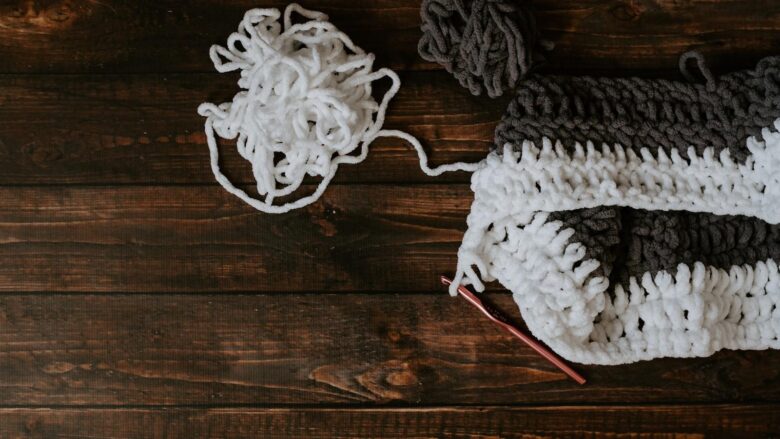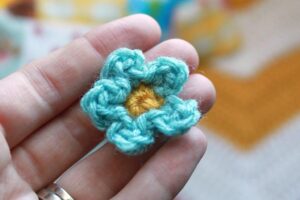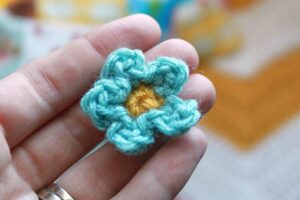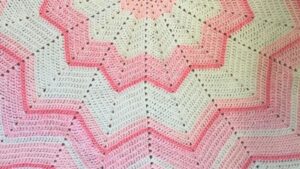Unraveling the threads of creativity and dexterity, crochet has long been an art form that transcends generations. From intricately designed afghans to adorably crafted amigurumi, the possibilities with crochet are boundless. However, whether you’re an enthusiastic novice or a seasoned crochet connoisseur, there’s one little devil that often tugs at the seams of our projects – tension. Ah, tension, the elusive balance that imparts the soul of every stitch. Fear not, fellow yarn enthusiasts, for we have gathered a treasure trove of pro tips that will help you conquer the enigma of crochet tension and transform your projects from good to downright extraordinary. So gather your hook and yarn, and prepare to embark on a journey through the realms of tension perfection – where crochet dreams are spun into reality like a magical tapestry.
Achieving the Ideal Crochet Tension: Understanding the Basics
Are you frustrated with your crochet projects not turning out the way you envisioned them? Don’t worry, you’re not alone! Achieving the perfect crochet tension can be a challenge, but with a few pro tips, you’ll be well on your way to creating beautifully even stitches.
First and foremost, it’s important to understand the basics of crochet tension. Tension refers to the amount of tightness or looseness in your stitches, and it greatly affects the overall appearance and size of your project. Too tight tension results in stiff and small work, while too loose tension can make your stitches floppy and uneven.
So, how can you achieve that ideal crochet tension? Let’s dive into the pro tips:
- Choose the right hook size: Using the correct hook size for your yarn is crucial in achieving the desired tension. If your stitches are too tight, try using a larger hook, and if they are too loose, opt for a smaller hook. Experimenting with different hook sizes will help you find the perfect match.
- Practice consistent tension: Try to maintain a consistent tension throughout your entire crochet project. Avoid pulling too tightly on the yarn when making stitches, as this can create unnecessary tension. Likewise, be mindful not to leave your stitches too loose. Practice makes perfect, so keep on crocheting to develop a steady and even tension.
- Consider blocking: Blocking your finished crochet project can work wonders in achieving the ideal tension. Blocking involves gently wetting your work and reshaping it to the desired size and shape, then allowing it to dry. This process can help relax tight stitches and even out any inconsistencies in your tension.
Fine-Tuning Your Stitches: How to Adjust Crochet Tension for Consistency
One of the keys to creating beautiful crochet projects is achieving consistent tension throughout your work. Whether you’re a beginner or an experienced crocheter, fine-tuning your stitches can make a world of difference in the overall look and feel of your creations. In this post, we’ll share some pro tips for perfecting your crochet tension, helping you create professional-looking pieces every time.
To adjust your crochet tension, consider the following tips:
- Select the right hook size: Using the correct hook size for your yarn is crucial in maintaining consistent tension. Experiment with different hook sizes to find the one that allows your stitches to flow smoothly without being too tight or too loose.
- Relax your grip: A common mistake among crocheters is gripping the hook and yarn too tightly. Loosening your grip and allowing the yarn to flow through your fingers more freely can help achieve a more relaxed tension.
- Practice consistent hand movements: Keeping a consistent rhythm with your hand movements while crocheting can greatly improve your tension. Try to find a comfortable motion and practice it until it becomes second nature.
- Use stitch markers: To ensure consistent tension across your project, use stitch markers to mark the beginning and end of each row or round. This will help you keep track of your stitches and avoid unintentionally increasing or decreasing your tension.
Remember, achieving perfect crochet tension takes practice and patience. Don’t be discouraged if your first attempts don’t turn out as expected. Keep experimenting and fine-tuning your stitches, and soon you’ll be creating beautiful crochet projects with impeccable tension!
Breathing Life into Your Crochet Projects: Controlling Tension for Different Yarn Types
Pro Tips for Perfecting Your Crochet Tension
Controlling tension is the secret ingredient to breathing life into your crochet projects. Whether you’re a beginner or an experienced crocheter, finding the perfect tension for different types of yarn can make a world of difference in the outcome of your creations. Here are some pro tips to help you master your crochet tension.
Tension Matters: Match It to Your Yarn
Each yarn type has its own unique characteristics, and understanding how to adjust your tension accordingly can elevate your crochet game. Here are some key tips to keep in mind:
- Lace weight yarn: This delicate yarn requires a light touch. Looser tension will allow for the dainty and airy look that lace patterns require.
- Worsted or aran weight yarn: For most general crochet projects, a medium tension is the way to go. Not too tight, not too loose. Find that sweet spot for your yarn size to ensure stitches are even and consistent.
- Bulky or super bulky yarn: These thicker yarns call for a looser tension to accommodate the added bulk. Keep your stitches relaxed to avoid a stiff and unyielding finished product.
Practice Makes Perfect
Now that you know how different yarn types require different tensions, it’s time to put those skills into action. Here are a few practice exercises to help you develop better control:
- Experiment with different hook sizes and yarn weights to see how your tension can affect the final look of your crochet.
- Crochet a small swatch using each of the yarn weights you typically work with. Pay attention to the tightness or looseness of your stitches and make adjustments accordingly.
- If you find it challenging to maintain a consistent tension, consider using a yarn holder to help regulate the flow of the yarn.
| Yarn Weight | Tension |
|---|---|
| Lace weight | Loose |
| Worsted or aran weight | Medium |
| Bulky or super bulky | Loose |
Remember, achieving the perfect tension takes practice and patience. By mastering your crochet tension, you’ll be able to bring out the best in every yarn type, creating beautiful and professional-looking crochet projects.
Common Tension Issues Demystified: Troubleshooting Tips to Improve Your Crochet Work
Are you frustrated with the tension in your crochet projects? Don’t worry, we’ve got you covered! In this post, we’ll uncover some common tension issues that can arise during crochet and provide you with troubleshooting tips to help you perfect your crochet tension. With a little practice and these pro tips, you’ll be creating beautiful and even stitches in no time!
1. Uneven Stitches
One of the most common tension issues in crochet is uneven stitches. This happens when your stitches vary in size, resulting in an unprofessional finished look. To tackle this problem, try the following troubleshooting tips:
- Hold your hook and yarn correctly: Proper hand placement is essential for maintaining consistent tension. Hold the hook comfortably, ensuring it’s not too tight or loose in your grip. The yarn should flow smoothly through your fingers, allowing for even tension.
- Practice consistent yarn tension: Pay attention to the amount of tension you apply to the yarn as you work each stitch. Avoid pulling too tightly or leaving it too loose. Find a balance that suits your style and stick to it.
2. Stitches Too Tight or Too Loose
Another tension issue that often arises in crochet is stitches that are either too tight or too loose. Both can affect the size and drape of your project. Here’s what you can do to overcome this challenge:
- Adjust your hook size: If your stitches are too tight, try switching to a larger hook size. Conversely, if your stitches are too loose, opt for a smaller hook size. Experiment with different sizes until you find the one that produces stitches with the desired tension.
- Practice consistent hand movements: The speed and force with which you make your stitches can impact tension. Slow down and pay attention to your hand movements. Consistency in how you work each stitch will help ensure even tension throughout your project.
3. Correcting Tension on Pattern Changes
When following a crochet pattern, you may encounter tension issues when switching between different stitch patterns or stitch counts. To maintain consistency and achieve a polished finish, remember these troubleshooting tips:
| Pattern Change | Troubleshooting Tip |
|---|---|
| Switching Stitch Patterns | Take note of the tension on your current stitch pattern before transitioning. Adjust your tension accordingly when starting the new pattern to achieve a seamless blend. |
| Changing Stitch Count | Be mindful of the stitch count changes in your pattern. Adjust your tension to accommodate any increases or decreases to maintain an even and balanced fabric. |
Remember, achieving perfect crochet tension takes practice and patience. So, don’t get discouraged if it doesn’t happen overnight. With these troubleshooting tips and a little perseverance, you’ll be well on your way to mastering crochet tension and creating stunning projects!
Mastering the Art of Tension Control: Pro Techniques to Enhance Your Crochet Skills
Keeping Your Stitches in Check
Have you ever noticed how some crocheted projects look perfectly polished, while others seem a bit wonky? The secret lies in mastering the art of tension control. Crochet tension refers to the tightness or looseness of your stitches, and it can significantly impact the finished appearance of your work. Here, we’ll share some pro techniques to help you enhance your crochet skills and achieve that flawless tension every time.
1. Play with Hook Sizes
One of the easiest ways to adjust your crochet tension is by experimenting with different hook sizes. If your stitches are too tight and your work feels stiff, try switching to a larger hook. Conversely, if your stitches are too loose and your fabric is sagging, opt for a smaller hook. Remember, the key is to find the hook size that allows you to crochet comfortably while maintaining consistent tension throughout your entire project.
2. Practice Consistency
Consistency is paramount when it comes to achieving perfect tension. Try to maintain the same level of tension with each stitch by focusing on your hand movements. Keep an eye out for any unconscious tension changes and make a conscious effort to crochet evenly. You can also consider using a stitch marker to help you track your tension throughout a project, ensuring your stitches stay uniform.
3. Find Your Rhythm
Establishing a rhythm while crocheting can do wonders for your tension control. Find the pace and way of crocheting that feels most natural to you. Remember to breathe and relax as you work, as tension often arises from holding your breath or gripping the yarn too tightly. By finding your own rhythm, you’ll be able to create consistently tensioned stitches and maintain an enjoyable crochet experience.
| Hook Size | Tension Result |
|---|---|
| 4mm | Medium tension |
| 5mm | Loose tension |
| 3.5mm | Tight tension |
As you unravel your yarn and gently set aside your crochet hook, take a moment to revel in the satisfaction of your newly perfected crochet tension. The subtle harmony of your stitches, the delicate balance between too tight and too loose, proves that you have mastered the art of crochet like a seasoned artisan. With these pro tips, you have elevated your craft to new heights and opened the door to endless possibilities.
Remember, perfecting your crochet tension is like dancing to an intricate melody – it requires finesse, practice, and an understanding of the nuances in every step. The rhythm of your stitches, the tension of your yarn, and the gentle guidance of your hook all come together to create a masterpiece that is uniquely yours.
So, as you gradually tighten your tension, pay attention to the details that truly matter. Allow your hook to glide effortlessly through each stitch, caressing the yarn with a touch that is both gentle and purposeful. Embrace the ebb and flow of your crochet journey, as you adapt and refine your technique with each passing row.
Oh, the wonders that await you as you weave together a fabric of your dreams! Whether it be a cozy blanket to warm your loved ones, an intricate doily to adorn your home, or a trendy accessory to accentuate your personal style, your crochet stitches will now stand as a testament to your dedication and skill.
But remember, dear crocheter, there is no need to attain perfection. Crochet is a refuge of creativity and self-expression, a medium where imperfections can be cherished. Each slightly uneven stitch, every playful variation in tension, adds character and charm to your handmade treasures.
So, with each project you embolden with your magical touch, revel in the journey itself. Envelope yourself in the joy that comes from creating something beautiful with your own two hands. And as you continue to explore the colorful realm of crochet, may your tension always be just right, embracing the perfect balance between structure and artistry.
Now, go forth, dear crocheter, and unleash the power of your now-mastered crochet tension upon the world. Let your stitches be a testament to your creativity, dedication, and love for the craft. With every loop and twist, you are creating more than just fabric – you are weaving together a story, your story, one stitch at a time.



